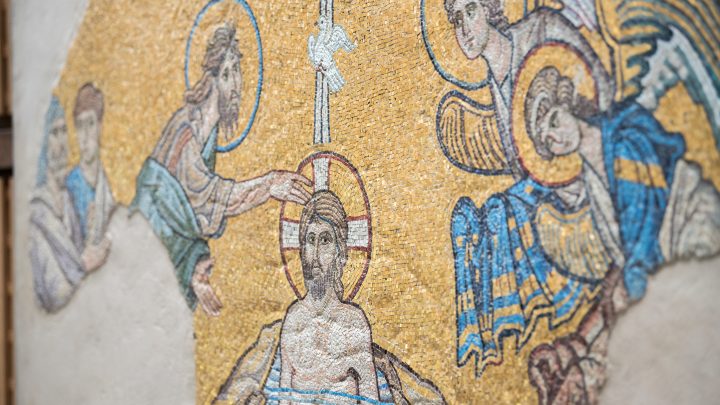An Offering from the Christian Unity and Interreligious Relationships Team
The Week of Prayer for Christian Unity takes place this year from January 18-25. The theme is “Do You Believe?” and is based on Jesus’ conversation with Martha in John 11: “I am the resurrection and the life. Those who believe in me, even though they die, will live, and everyone who lives and believes in me will never die. Do you believe this?”
The theme was chosen in recognition of the 1700th anniversary of the First Council of Nicaea (325), at which the words “I believe” were chosen to anchor the Creed as an instrument of universal Christian unity. For each day during this Week of Prayer for Christian Unity, the members of the Christian Unity and Interreligious Relationships (CUIR) committee will share a series of devotions based on the statements in the Nicene Creed.
You can sign up to receive these devotions each morning in your email or view them on our website.
Day 2: Maker of heaven and earth, of all that is, seen and unseen…
“In the beginning when God created the heavens and the earth, the earth was a formless void and darkness covered the face of the deep, while a wind from God swept over the face of the waters. Then God said, ‘Let there be light’; and there was light. And God saw that the light was good; and God separated the light from the darkness. God called the light Day, and the darkness he called Night. And there was evening and there was morning, the first day.”
Genesis 1:1-5
According to the Book of Genesis, the creation of heaven and earth begins in darkness, the kind of darkness that defies being named. It is the darkness before darkness, a darkness without form or substance, a fathomless deep, a cavernous void that doesn’t know whether it is or it isn’t. The historic doctrines of the Church insist that God created the universe out of nothing. In good Latin fashion, we call it creatio ex nihilo. Far be it from me to argue with the theological luminaries who formulated the belief, but the opening verses of Genesis give me pause. In reading the text, I do not see “nothing,” but nor do I see “something” (at least in the usual, material, sense of the word). There is a chaos, a defiance of definition, a crashing of tides, as reality attempts to become real, as the incoherent attempts to cohere.
In our daily living, we do not so much fear the primordial darkness or even the physical darkness. After all, we imagine ourselves too enlightened to fear the first, while a good light bulb vanishes the latter. What we truly fear is non-order and disorder. We live under the creeping suspicion that the forces of chaos, both seen and unseen, lurk just on the edge of our carefully constructed lives, awaiting an opportunity to unmake us. Like the Irish poet, William Butler Yeats, writing at the conclusion of the First World War, we fear the “center will not hold.” We fear that we will not hold or be held. Yet, in the wind sweeping rapturously over the face of the waters, in the defining word of “Let there be light,” we encounter a God not subject to chaos, but a God who gives order, meaning, and function. We encounter a God who is in control, orchestrating the vast symphony of the universe, ensuring that discordant cacophony resolves into magnificent harmony. To profess, as the Nicene Creed states, that God is “maker of heaven and earth, of all that is, seen and unseen,” is to say that all being (or at least, all that we know of what it means to be), including the chaos that more than occasionally creeps in, is within God’s good order.
Prayer: Maker of heaven and earth, composer of all that is, tamer of tumbling chaos, we praise and thank you for giving order to our existence and helping us make sense of our lives. By your defining word, guard us from that which would unmake us, allow our centers to hold even in these unsettled times. We ask this through Jesus Christ our Lord, who lives and reigns with you and the Holy Spirit, One God, forever and ever. Amen.
Rob Licht is the Pastor of First UMC of Sneads Ferry and a member of CUIR.
Photo by Albin Hillert, 4 October 2019, Geneva, Switzerland: Ecumenical Centre, Geneva.

